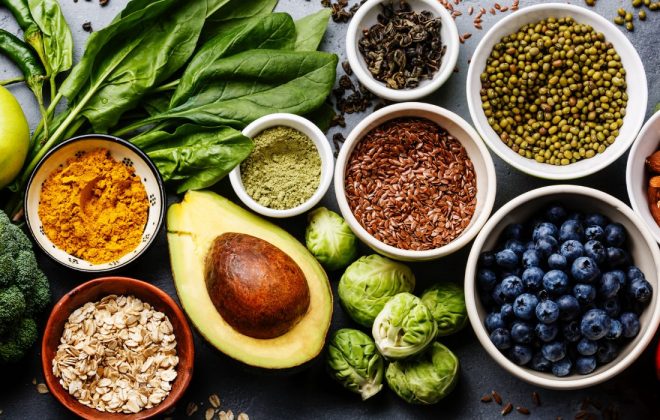The Dangers of Sugar & How to Overcome Cravings
By Deborah Lethby, Nutritionist at attend2health

The World Health Organisation guidelines state that the maximum recommended sugar intake per day by age group is:
- 4 to 6 years old – 19g (5 tsp)
- 7 to 10 years – 24g (6 tsp)
- From 11 years – 30g (7 tsp)
A single teaspoon is about 4g, so it can be easy to reach that amount!

But why is sugar so bad for us?
Sugars can be converted into fat mass, increasing the risks of becoming overweight or obese. As well as leading to weight gain, research has shown that too much sugar increases our risk of chronic diseases including diabetes, Alzheimer’s, heart disease and cancer.
The body releases insulin to move sugar from the blood into our cells. When we continually eat too much sugar this mechanism can break down and work less efficiently, and over time the body stops responding to insulin, resulting in high blood sugar levels – this is called insulin resistance, which can lead on to type 2 diabetes.
Insulin resistance can make you both gain weight and crave sugar.
It is important to tackle insulin resistance in order to lose weight in the long term.
As well as avoiding sugar, we can also help to reverse or avoid insulin resistance by exercising, checking our thyroid health, getting enough sleep and introducing intermittent fasting (for example, eating just within a 8/10 hr window from 10am-6pm or 9am to 7pm).
Reducing our sugar intake will not only reduce our risk of chronic disease, but doing so can result in a better memory, clearer skin, happier moods and more energy – win, win!

So how can we tackle those sugar cravings?
This can be easier said than done though, as many of us find ourselves reaching for a sugary snack all too often. Here are a few of my tips to help stop these urges:
- Ensure you eat protein at every meal, especially breakfast – this will help balance blood sugar and minimise cravings – it will also help to stop you feeling hungry so you will be less likely to reach for snacks.
- Avoid sugary drinks such as fizzy drinks and fruit juices (even with sweeteners – these will still keep us wanting sugar and encourage us to eat more!) – try fruit-infused water or herbal teas instead.
- Avoid ‘low fat’ products – healthy fats such as avocados, olive oil, nuts, seeds and oily fish will help fill you up, satisfy hunger and balance blood sugar.
- Eat lots of veggies – these are full of nutrients and fibre – go for non-starchy veg like green leafy’s, broccoli, asparagus, mushrooms – and there’s no limit on these (within reason)!
- Make sure you’re stocked up on healthy snacks such as nuts, berries, dark chocolate or low/no sugar protein bars – see the link below to download my free ‘sugar free treats’ recipe book. Also, remove those sugar-dense treats from the cupboards!
- Make sure you get enough sleep – when we are tired, we are more likely to reach for those unhealthy snacks.
- Start to reduce/eliminate sugar at the right time – when we are stressed it is a lot more difficult!
- If you are prone to snacking when watching TV – try taking up a hobby such as knitting/sewing to keep yourself occupied, or when you feel a craving, find something to do – often it is boredom that leads to snacking!
If you do feel the need to snack in between meals, here are some healthy snack options:
- Oat cakes/rice cakes with nut butter (or apple slices with nut butter)
- Humous or cottage cheese with veggie sticks
- Unsweetened popcorn or roasted spicy chickpeas
- Nuts and seeds (stick to a handful!)
- Plain bio yoghurt with berries/seeds
- Mashed avocado/tinned mackerel on oatcakes/rice cakes
- Hard boiled eggs – these can be prepped and kept in the fridge for a few days – remember to mark them though 😊
- No sugar protein balls or protein bars
To download your free ‘sugar free treats’ recipe book, click here https://linktr.ee/nutrissential
Getting off the sugar can be a tough challenge, but with ongoing support and coaching Deborah can help – if you’d like to know more, or find out how she can help with other health issues, why not book in a free 30 minute health review call with her here – https://my.practicebetter.io/#/5cd1bab8627d791d6869e866/bookings?s=5e1b70052a98231108a71868
Deborah works at Attend2Health on a Monday and Tuesday. Here is a bit more about her.
Louise Hampton
Related Posts
Latest Feedback
Google Rating
5.0 188 reviews
-
Alysha Carter ★★★★★ a month ago
I was having bad lower back pain every time I bent over, a few sessions with Megan as well as some very good exercises at … More home has made such a huge difference to my quality of life! I have also learnt a great deal of knowledge that is priceless. -
Janet Warrington ★★★★★ 4 months ago
I have been meaning to do this for a while. I would highly recommend Attend2Health in Buntingford. All of the staff I have … More met are professional, caring and friendly. I have arthritis in my neck and was suffering with pain. I went to see Ginelle in June 2023 and have been regularly seeing her since then. She corrects the alignment of my spine, deep massages the muscles and straps me up - ready to take on the world again! I would highly recommend Ginelle if you are in need of an osteopath. -
Pauline Collins ★★★★★ 3 months ago
I was recommended to go to Attend2Health in Buntingford a few years ago. The first time I went I saw Daisey , recently I … More have been seeing Megan. Megn is very friendly , professional and informative lady if I have a question she always gives me advice ,and is through in the treatment I receive from her. The whole atmosphere is very pleasant the receptions are also very friendly. I would definately recommend Attend2Health.


